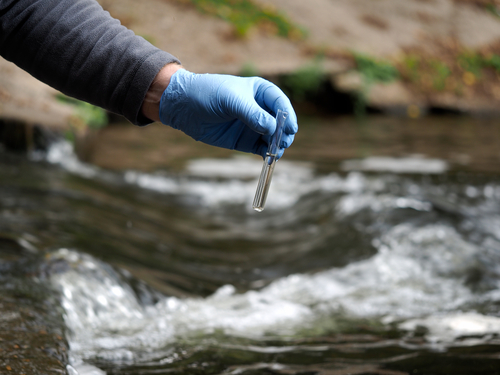Our test tells you which everyday chemicals you've recently come into contact with, and easy steps you can follow to reduce your exposure to them.
Are we at break point on chemicals?

Last week a new study published in the American Society of Chemicals explored the impacts of climate change, and reviews how well we can manage the consequences of our global reliance on chemicals. The research team assert that we’ve reached a point where unless we make significant changes to our use of plastics and the pollution it creates, we are in danger of creating irreversible consequences for our biosphere.
The study reports that increasing production and emissions of so-called ‘Novel Entities’ (which includes products manufactured using chemicals such as plastics) will soon outstrip our capacity to assess and monitor the impacts, which may prove more than our planetary boundaries can tolerate. In simple terms the study asks, are we at breaking point with our use of plastics? It concludes that we are fast approaching the point where we cannot sustain our planet if we continue to rely on plastics as we do now.
What can we do to slow it down?
The European Commission has just reviewed its Chemicals Strategy for Sustainability, evaluating the long term benefits of offering economic incentives to encourage manufacturers to substitute the most harmful chemicals with more sustainable ones. Manufacturing companies could be offered financial incentives to support more sustainable choices.
The report was followed by an EU wide public consultation launched last week on the authorisation process for chemical uses, which could further drive progress towards a more sustainable future. Now that the UK is outside the EU, we can’t participate in this consultation, but it will be interesting to see if UK legislators follow the same line of enquiry.
What are legislators doing about chemicals in the UK?
The UK REACH agency was established in January 2022, operating independently from the EU. The aims of UK REACH are to protect human health and the environment from the use of chemicals. It places the burden of proof with manufacturers who are obliged to demonstrate safe use of chemical substances, but they must operate only with the current legislative guidance. As the first study shows, there is a significant lag between chemical usage within legislative boundaries, and a full assessment of what is thought to be safe; a lack of evidence does not make chemical use safe.
EDCs in drinking water – is it safe?
PFAS (per & polyfluoroalkyl), often described as a ‘forever chemical’ has been traced in water courses in the UK, but our water supply isn’t routinely tested for it. In the US, it’s a public health story with numerous high profile cases being brought against chemical companies who dispose of chemical waste, including PFAS into US waterways – this startling map shows where PFAS has already been detected.
Is it ever going to possible to achieve zero pollution in drinking water?
PFAS is widely used in plastic food packaging and can leach into our water. To reduce your exposure levels to PFAS consider buying less food packaged in plastics, switch from plastic water bottles (especially single use), and consider installing a water filtration system to filter out some of the chemicals.
Read more about how you can reduce your exposure to EDCs.